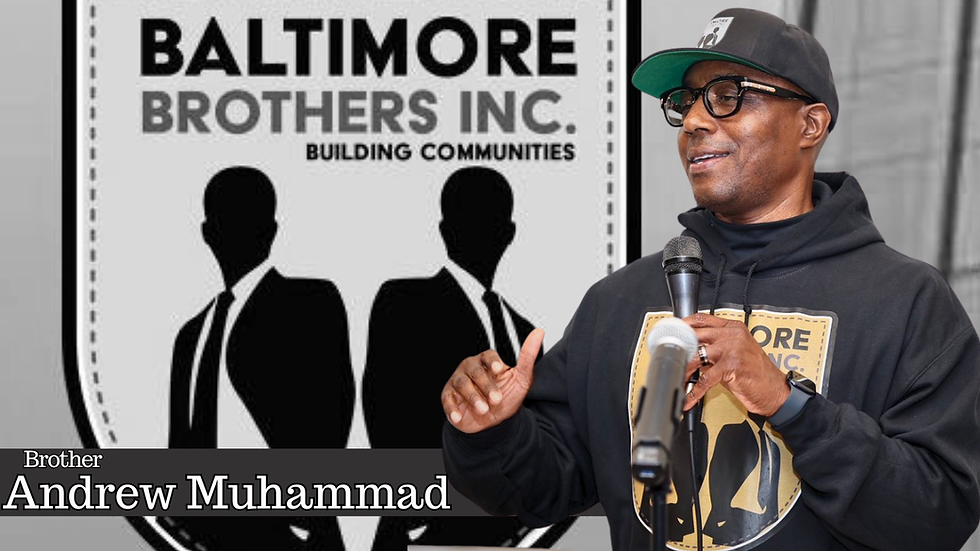“Made in China, Sold to the Culture: The Hidden Truth Behind Luxury Brands”
- Brother Levon X

- Apr 13
- 3 min read

For decades, the fashion world has sold us a dream—sleek logos, exclusive designs, and the promise that wearing a certain brand means you’ve “made it.” In music videos, on red carpets, and across TV screens, celebrities show off expensive clothes, bags, and shoes, making it seem like these brands are the badge of success. But what if the real story behind those brands—and where that money is going—tells us something very different?
Let’s start with the facts. Many of the luxury brands promoted on TV and in music aren’t even made where they say they are. A lot of them are manufactured in China for as little as $20 to $30. Then, they’re marked up and sold to the public for $600, $1,200, or more—all because of a logo. Often, these items are marketed as “Made in Italy” or “Parisian luxury,” but the truth is, they’re produced in the same overseas factories as non-luxury goods. The difference? One has a brand name and celebrity backing. The other doesn’t.
And this is where the Black community comes into the picture.
Black consumers—especially in America—spend billions of dollars every year on fashion, entertainment, and beauty. According to Nielsen and other studies, Black spending power has been rising for years, reaching over $1.8 trillion recently. But the question is: how much of that money is coming back into our communities?
The sad reality is that many of the brands we support don’t reinvest in us. They don’t build schools in our neighborhoods. They don’t sponsor our events unless a celebrity is involved. They don’t help small Black-owned businesses get a leg up. In fact, some of these brands have had racist advertisements, disrespectful campaigns, or have outright said they don’t want their clothes worn by Black people—and yet, we continue to buy their products like they’re a badge of honor.
Much of this is fueled by the music and television industry. Rappers, influencers, and actors often feel pressure to wear designer clothes to maintain their image. Labels use these artists to promote their goods to the masses, and unfortunately, many of these artists become walking billboards for companies that wouldn’t hire them for an executive role or support their community work. It’s not that the artists are evil—it’s that we’ve been trained to believe that success looks like wearing another man’s name.
But we need to shift that thinking. Success should look like owning your name, supporting your community, and building wealth that lasts.
There are plenty of talented Black designers, creators, and visionaries who make incredible fashion. But because they don’t have the marketing budget or celebrity endorsements, they’re often overlooked. Meanwhile, we’re giving free promotion to billion-dollar brands that wouldn’t blink twice if our communities were in crisis. That has to stop.
We have to ask ourselves: what message are we sending to our youth when we tell them that being “fly” means wearing Gucci, Prada, or Balenciaga—but not supporting Black-owned brands or wearing clothing that actually reflects our culture and values? What are we teaching about self-worth when we define it through foreign labels instead of our own creativity and power?
We are the trendsetters. From hip-hop to streetwear to high fashion, it’s our influence that shapes the culture. If we can make those brands hot, we can make our own brands hot. We just need to stop justifying our loyalty to companies that have shown us time and time again that they don’t value us beyond our dollars.
This doesn’t mean we have to stop appreciating fashion or luxury. It means we have to be intentional. Let’s support brands that support us. Let’s promote clothing that tells a story—not just sells a status. Let’s teach the next generation that they don’t have to chase validation through overpriced products made in overseas factories by people who have no idea who we are.
The next time you think about spending hundreds—or even thousands—on a name brand, ask yourself: does this brand love me back? If the answer is no, then maybe it’s time to wear something that does.
Let’s make this personal. Take time this week to look up at least three Black-owned clothing brands or designers and support one—whether by purchasing, sharing, or simply following their story. If you have a podcast, a blog, or even a group chat, start a conversation about where your fashion dollars are going.
If you’re an artist, musician, or content creator, use your platform to uplift brands that uplift us. Let’s make it cool to rock with companies that reflect our values, our culture, and our future.
This is not just about clothes—it’s about consciousness, culture, and control of our narrative. Let’s reclaim our power, one purchase at a time.





Comments